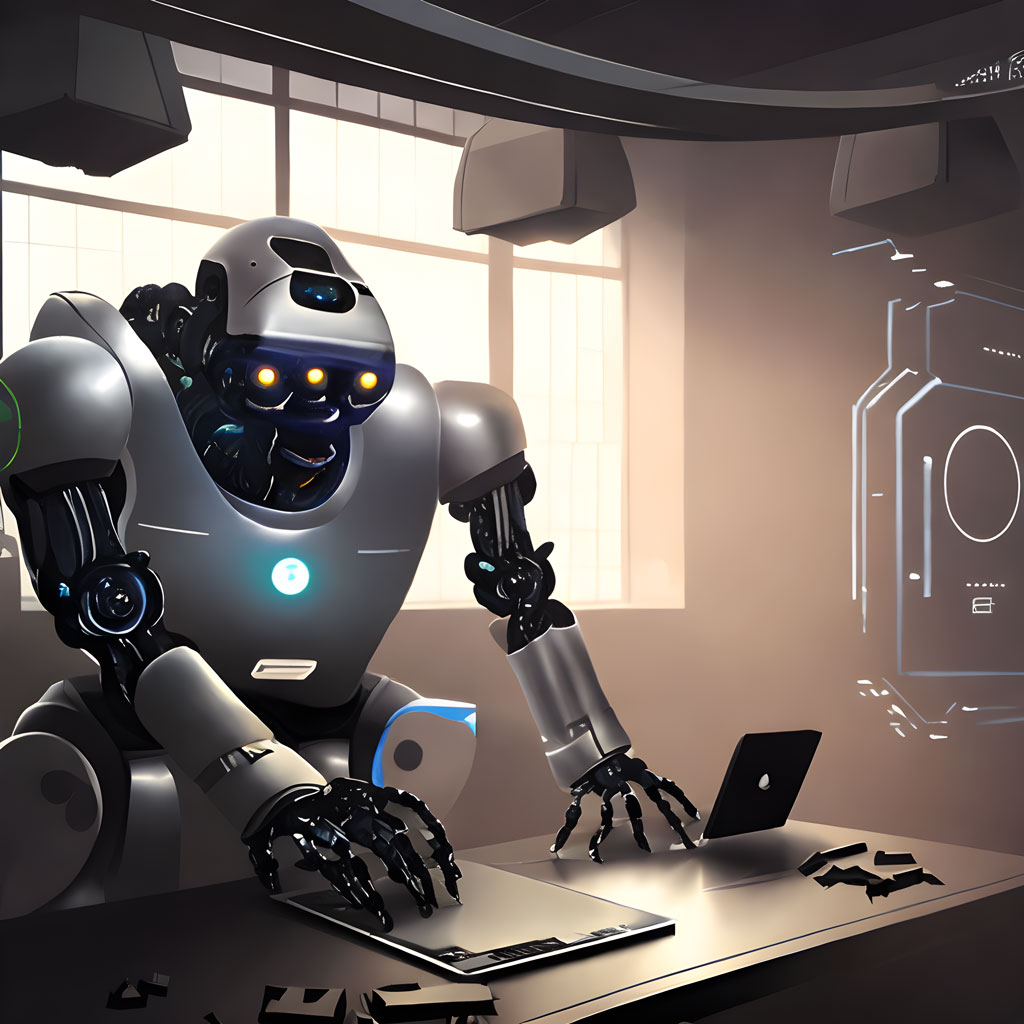Physical Address
304 North Cardinal St.
Dorchester Center, MA 02124
Physical Address
304 North Cardinal St.
Dorchester Center, MA 02124

Artificial Intelligence (AI) has revolutionized various industries, and marketing is no exception. In this digital age, where data is abundant and consumer expectations constantly evolve, AI presents many opportunities for marketers to streamline their processes, enhance customer experiences, and drive better results. This article delves into the future of AI in marketing and explores the key areas where AI is coming to make a significant impact.
AI Refers to Develop Computer Systems That Can Perform Tasks Requiring Human Intelligence.
Enterprises continuously search for cutting-edge approaches to secure a competitive advantage in today’s ever-changing digital environment. Such a technology that has brought about a revolution across various sectors is artificial intelligence (AI). The Future of AI in Marketing envisions the development of computer systems that can accomplish tasks previously performed solely by humans. Within the marketing realm, implementing AI algorithms and technologies has empowered businesses to analyze extensive data sets, automate processes, and make informed decisions based on data. Consequently, this has paved the way for more personalized and efficient marketing strategies, propelling the industry into an exciting future.
Personalization has become crucial in marketing, as consumers expect tailored experiences. AI enables marketers to collect and analyze customer data to create personalized content, offers, and recommendations. By leveraging AI, marketers can deliver highly relevant messages to target audiences, increasing engagement and conversion rates.
AI-powered analytics tools can extract valuable insights from customer data, enabling marketers to better understand their target audience. Future of AI in Marketing, marketers can uncover patterns, preferences, and trends that might go unnoticed. These insights help refine marketing strategies, identify new market segments, and optimize campaign performance.
Creating content is a time-consuming task for marketers. AI can automate content creation by generating personalized articles, blog posts, and social media captions. Natural Language Processing (NLP) algorithms can produce coherent, high-quality content that aligns with the brand’s voice and resonates with the target audience.
Predictive analytics powered by AI can forecast customer behavior, allowing marketers to anticipate their needs and preferences. By leveraging historical data and ML (machine learning) algorithms, marketers can make data-driven predictions about customer churn, purchase likelihood, and lifetime value. This empowers marketers to optimize their marketing campaigns and allocate resources effectively.
Chatbots and virtual assistants are becoming increasingly prevalent in customer support and engagement. AI-powered chatbots can handle customer queries, provide product recommendations, and execute transactions. These conversational interfaces save time and resources while delivering prompt, personalized customer assistance.
With the rise of voice assistants like Siri, Alexa, and Google Assistant, optimizing content for voice search has become essential. Future of AI in Marketing is crucial in understanding natural language queries and delivering relevant results. Marketers must adapt their SEO strategies to cater to voice search queries, ensuring their brand stays visible and accessible in the voice-enabled world.
Social media platforms generate enormous amounts of data that AI can leverage. Marketers can use AI algorithms to analyze social media conversations, sentiments, and trends. This helps craft compelling social media campaigns, identify influencers, and engage with customers effectively.
AI can assist in influencer marketing by identifying the right influencers for a brand. By analyzing vast amounts of data, including social media metrics, content relevance, and audience demographics, AI-powered tools can recommend the most suitable influencers to collaborate with. This ensures that brands can reach their target audience through credible and influential voices.
Email marketing remains a powerful tool, and AI can enhance its effectiveness. AI algorithms can segment email lists based on customer behavior, preferences, and purchase history, enabling marketers to send highly personalized and targeted emails. AI-powered tools can also optimize send times, subject lines, and email content to maximize open and click-through rates.
AI-driven customer support systems can provide instant and accurate responses to customer queries. Through Natural Language Processing, chatbots can understand and address customer concerns, provide product information, and offer solutions. This ensures a seamless customer experience, reduces wait times, and improves overall customer satisfaction.
As AI continues to advance in marketing, ethical considerations become paramount. Marketers must ensure that AI algorithms are fair, unbiased, and transparent. They must be mindful of data privacy and comply with regulations to maintain customer trust. Striking a balance between personalization and privacy is crucial to avoid crossing ethical boundaries.
The integration of AI in marketing will undoubtedly impact job roles and responsibilities. Some tasks like data analysis and repetitive processes will be automated, freeing marketers’ time for higher-level strategic thinking and creativity. Marketers must upskill and adapt to leverage AI effectively, ensuring they remain valuable contributors in the changing landscape.
The future of AI in marketing holds exciting possibilities. Emerging technologies like augmented reality, virtual reality, and machine learning will continue to reshape marketing strategies. Marketers must stay updated with the latest trends, embrace innovation, and be open to experimenting with AI-powered solutions to stay ahead of the competition.
The future of AI in marketing is brimming with potential. From AI-powered personalization and automated content creation to predictive analytics and AI-driven customer support, marketers have many tools and technologies at their disposal. By harnessing the power of AI, marketers can enhance customer experiences, drive better results, and stay competitive in the ever-evolving digital landscape.